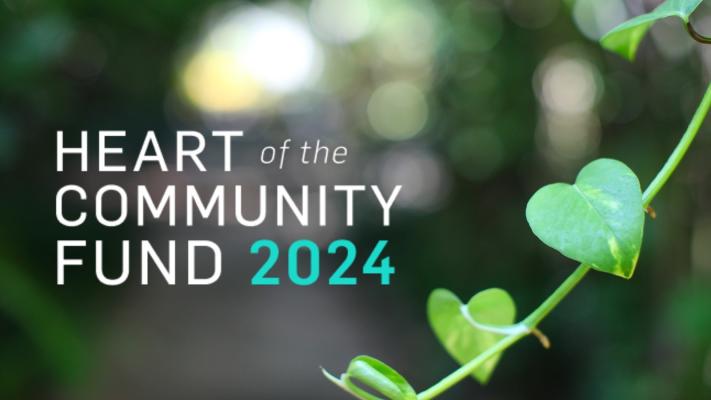Regulation
Depending on the work they do, community and voluntary organisations, charities and social enterprises must comply with many legal and regulatory requirements.
These include those related to the Charities Regulator (and the Charities Act); the Revenue Commissioners; the Companies Registration Office (and the Companies Act); the General Data Protection Regulations (GDPR); the Register of Lobbying (and other requirements of the Standards in Public Office Commission (SIPO) such as the Electoral Acts); Garda Vetting; the Health and Safety Authority; HIQA (Health Information and Quality Authority); Employment Law and – if funded by statutory agencies – the specific compliance requirements set by government departments and agencies such as Tusla, the HSE and Pobal.
The above list is not exhaustive and is intended to indicate the complexity of the general legal and regulatory environment that charities work in. There are regular developments and changes that take place relating to each of these areas, and we work to ensure that those changes are informed by their potential impact on community and voluntary organisations, charities and social enterprises.
There have been many important developments in recent years relating to the regulation of charities in Ireland resulting in a rapidly changing landscape. The Charities Regulator was established in 2014. All charities in Ireland must be registered with the Regulator and they must comply with the Regulator’s requirements relating to the duties of trustees, the submission of annual reports and annual accounts, the conduct of fundraising practice, and in the not-too-distant-future, the Regulator will also publish guidance on governance for charities and setting a financial reporting standard for charities.
What Are We Working On?
Streamlining Reporting & Regulatory Requirements
The Wheel campaigned for many years for regulation for charities, and after a challenging few years for the sector, we warmly welcomed the establishment of the Charities Regulator in 2014 - creating for the first time a clear and comprehensive regulatory framework for charities in Ireland.
However, charities have experienced a very significant increase in the range and intensity of legal, regulatory and funding-related compliance requirements in recent years but no additional funding has been made available for the accompanied administrative and finance work. Moreover, it is not realistic to expect charities to fundraise from the public for money that can support the additional administrative and finance costs that compliance with multiple reporting requirements entails.
An important focus of our work is on understanding the impact of the cumulative effect of all of these relatively new requirements, and their impact on the ability of charities to maintain their focus on their primary charitable purpose.
Achieving the highest standards of governance, transparency and accountability is vitally important for charities. However, an increasingly important aspect of our work focuses on providing for the increased costs that charities face in achieving these standards, and streamlining the sometimes incoherent and duplicated demands that are made of charities by the many actors they engage with. We are actively engaging with the Charities Regulator and with lead funding departments on this on behalf of our members.
Charity Regulation
The Charities Regulator has published several guidelines for charities, including guidance for charity trustees, guidance for fundraising and guidance to enable an organisation to determine whether it needs to register as a charity. The Regulator is currently drafting statutory guidance for the governance of charities, and we are working with the Regulator to ensure that this guidance builds on, and is consistent with, the existing, voluntary-sector led Governance Code for Community, Voluntary and Charitable Organisations. Furthermore, the Regulator will also be publishing a Financial Reporting Standard for Charities.
We host the Charity Finance Managers network for our members and this group identifies issues related to financial reporting standards as they relate to charities. An increasingly important focus of our work is the likely introduction of the Charities SORP (the Statement of Recommended Practice for Financial Reporting by Charities) as the requirement for larger charities in Ireland, along with a separate financial reporting standard for smaller charities
Governance
Achieving the highest governance standards and demonstrating high levels of transparency and accountability is an important priority for charities today. Charities are not private organisations – all of the funds raised by charities, whether they take the form of donations from the public, income earned using charitable resources, or government grants, are ultimately “public” funds. Understood this way, charities, and their trustees, are guardians, or custodians of public funds, for which they are accountable to the public. So the highest governance standards must apply. That said, charities face a struggle in raising funds to meet the cost associated with achieving best governance practice. This remains a challenge for the sector – especially when placed in the context of meeting the increasing regulatory and compliance requirements that charities are facing.
GDPR
The General Data Protection Regulations came into force on 25 May 2018 and we are working to ensure that charities understand what they need to do to comply; that the additional costs of compliance is recognised - and provided for - by funders; and that statutory authorities understand the sensitivities that may apply in some cases to issues related to “data ownership”. We are also working to support our members in determining; 1) whether they need to appoint special dedicated Data Protection Officers (as defined in the GDPR) and 2) when they are delivering state-funded services, understanding whether they are data controllers or data processors.
The GDPR are essentially about respecting people’s privacy, and their implementation is a good thing for society generally. GDPR is undoubtedly resulting in increased costs for organisations as they introduce new systems and processes to comply, but it will also result in more efficient and effective use of data – and more secure treatment of data – by charities, and that is to be welcomed. As the impact of the roll-out of the new GDPR regulations on charities becomes clearer, we will be working to ensure that any issues identified by our members are brought to the attention of the Data Protection Commissioners.
Beneficial Ownership
The law as it relates to charities involves more than just the Charities Act and the Charities Regulator. We are currently also working on the complicated issue of determining the beneficial ownership of charities.
Under European company law regulations, there is now a requirement that incorporated organisations (companies, and charities that are companies) identify who their “beneficial owners” are. This requirement is posing challenges for charities, because the trustees of charities do not “own” the resources of the charity (in fact, trustees can never privately benefit from the resources of a charity if they are to be a charity). They simply control the resources to be applied for the charitable purpose. In a sense, it is all citizens, or perhaps the beneficiaries of the work of a charity, who can best be understood as the “beneficial owners”. However, adopting this stance will not meet the requirement of the regulations, which demand that beneficial owners be explicitly identified. For private firms, the beneficial owners are the shareholders – in many cases the directors.
We are working with the Department of Finance (the department with responsibility for implementing the necessary provisions in Irish law), the Companies Registration Office (CRO) and the Charities Regulator to understand the implications of this pending reporting requirement for charities and to arrive at clear guidance on what charities need to do to comply.
Updates from Ivan
It really is hard to believe that February is already here. Below, you’ll find some updates on just a few of our recent developments and plans that may be of interest.
The loneliest country in Europe must not take its community supports for granted
Ireland is the loneliest country in the EU, according to a recent report. In the face of such a concerning analysis, we must do all that we can to foster vibrant communities and tackle this increasing
The Wheel Wins the Overall Award in Global Action Plan’s National Climate Competition
In November 2023, The Wheel was granted the Overall Award in Global Action Plan’s (GAP) National Climate Competition – competing against six other organisations including AIB and Virgin Media.
Season's Greetings and a Special Message from The Wheel's CEO
A Christmas message from The Wheel's CEO.






